AC601: Acceptance of new scientific concepts and the Science Jury mechanism
David Noel
<davidn@aoi.com.au>
Ben Franklin Centre for Theoretical Research
PO Box 27, Subiaco, WA 6008, Australia.
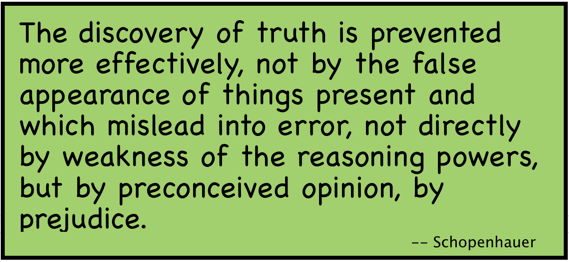
Quotation AC601-Q1.
Getting new ideas looked at
It is a common complaint of scientists who put forward ground-breaking new ideas, that they cannot get these looked at, however great the weight of evidence supporting the ideas. Those wishing to have their controversial ideas considered are told to "get them published in a peer-reviewed journal".
In practice, peer-reviewed journals never accept ideas which might upset the status quo, because there is nothing in it for them to do so, no reason to disturb their established readership. It's almost like a Closed Shop in industry.
The "peer-review" mechanism works OK for claims of new advances up to a certain level of orthodoxy, but fails for paradigm-changing advances or discoveries which could shake a long-established scientific area to its core. Of course, a proportion of such claims will be crackpot, but this does not justify rejecting everything in the "might-disturb" basket.
This may happen because those who have reached the top in a scientific field feel themselves challenged personally by new concepts which could reduce their status of authority. Consciously or subconsciously, this leads to barriers to acceptance of new ideas, often maintained until these scientists have left the field or died. Hence the wry quotation: "Science advances funeral by funeral".
It is almost invariably the case, with really paradigm-changing advances in science, that they are put forward by people who are not acknowledged "experts in the field". Often these proponents are actually experts in another scientific area, and have established their competence as clear thinkers.
This (sociological) problem has dismayed scientists certainly as far back as Galileo, persecuted by the Church for suggesting that the Earth travels around the Sun, and not vice versa. The 16th-century Italian philosopher (and former Catholic priest) Giordano Bruno was burned at the stake for a stubborn adherence to his then unorthodox beliefs -- including the ideas that the universe is infinite and that other solar systems exist.
In more recent times (1989), the problem of professional acceptance of new ideas has been looked at by Thomas Gold, one of the ‘Terrible Trio’ of cosmological physicists (along with Fred Hoyle and Hermann Bondi).
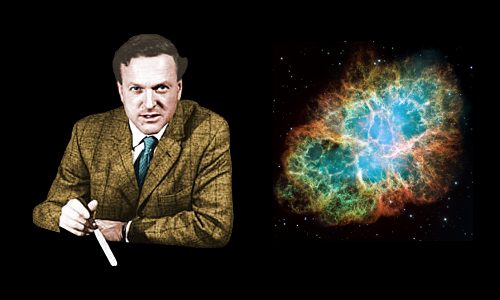
Figure AC601-F1. Thomas Gold. From [5].
Thomas Gold (1920 -- 2004) was a free-thinking physicist and astrophysicist who refused to bow to consensus [5]. A prime mover in the theories of the steady state universe and the non-biological origin of crude oil, his work was admired by some and shunned by others.
Several of his theories were at first rejected and later discovered to be correct, such as his explanation of pulsars and of sound amplification in the ear. He never took any formal college-level physics courses.
In [4] Thomas Gold says "New ideas in science are not always right just because they are new. Nor are the old ideas always wrong just because they are old. A critical attitude is clearly required of every scientist. But what is required is to be equally critical to the old ideas as to the new. Whenever the established ideas are accepted uncritically, but conflicting new evidence is brushed aside and not reported because it does not fit, then that particular science is in deep trouble -- and it has happened quite often in the historical past. If we look over the history of science, there are very long periods when the uncritical acceptance of the established ideas was a real hindrance to the pursuit of the new."
Gold put a lot of thought into alternative ways of getting proper evaluation of discoveries which could greatly benefit mankind, but were scuppered by inertia or by stonewalling by establishment figures. Here is what he proposed in [5]
"Is there another way of doing it? I suppose that the best that I can think of is roughly on the lines of what my friend, Arthur Katrowitz proposed at least for major decisions: The "science court" idea is the best one.
Where a lot is at stake, where a subject has been driven into an alley, one must set up a science court where the different viewpoints would be heard, would be argued by the protagonists of each one, with carefully prepared work. The different viewpoints could be judged, not by others working in that same field, which would merely take you back to the herd, but would be judged by a group of very knowledgeable and very competent scientists distributed over other fields, but with enough general competence to be able to listen and understand the detailed arguments of the field in question.
I would be much happier to have subjects surveyed every now and again by a jury of that kind. It has to be a scientific jury because it would have to understand detailed scientific arguments, but they do not have to be -- and should not be -- from the field in which the decision is to be made."
Implementing the Science Jury mechanism
When it comes to putting new ideas to the test of reality, most would say this is a fundamental part of the scientific approach -- but, as we have seen, it doesn't happen easily for the most fundamental ideas.
The Science Jury approach could have been implemented, with some difficulty, back in Thomas Gold's day. The situation is far easier today, as we approach 2020, because of the Internet. Instead of a physical courtroom, with the jurors sitting together to decide a case, we can have a panel of jurors selected from people around the world, examining evidence put forward and circulated through the Internet.
For each we still need a Protagonist, to put forward a particular scientific Proposition, and a panel of Jurors willing to take part in examining the Proposition. Also the whole scheme needs a Registrar, to administrate the process. I think that a Case could be progressed with very little cost -- Protagonists would be keen to have their cases examined, and I think scientists would regard it as an honour to attain the status of a Science Juror. Even administration costs should be fairly small, and might be taken on by any of a number of organizations interested in the advancement of science.
A Science Jury trial could be a much more open event than a conventional legal trial, though there would need to be some practical limits. Ability to submit evidence, for example, could be open to all, but there would need to be some moderation of submissions to weed out lobby group inputs and attempts to subvert the judgement process.
With an established Registrar, and a panel of potential Jurors, the procedure might be that the Registrar's website would accept submissions from Protagonists with specific Propositions. Each accepted Proposition would be advertised on the website, with a given time for submission of evidence -- maybe one year.
At the end of the year, a number of Jurors (perhaps 9) would be chosen (randomly?) from the available pool, and they would have (say) 6 months to consider the evidence put forward between and give a judgement.
A possible Science Jury case -- Average Sea-level Changes
The current general belief is usually that Average Sea-levels are Rising, with the danger of coastal areas being liable to future flooding through ingress of the sea.
In fact, there is a wealth of historical evidence that sea-levels are falling, with examples of places which were once sea-ports now situated well inland, as in The Rising Sealevel Myth -- Proofs that ocean levels are falling, not rising [6].
In one example from [6], Ephesus in modern Turkey was for a while the second largest city in the Roman Empire, and a major trading port. Visitors today have the opportunity to walk down past the Amphitheatre, the Library of Celsus, and the Forum, towards the Harbour, the centre for Ephesus's big volume of imports and exports.
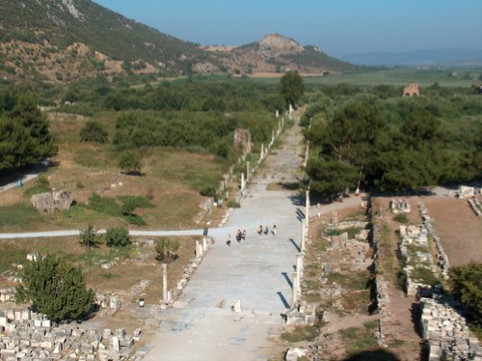
Figure AC601-F2. The road down to the Harbour, Ephesus.. From [6].
Today, the site of the Roman harbour of Ephesus is some 9 kilometres inland. Examination of the contours using Google Earth shows the sheltered harbour which Ephesus must have enjoyed -- at a time when local sea-levels were some 6 metres lower than they are today.
In this example, the Protagonist (say, me) would be putting forward a specific Proposition (which might say "Average World Sea-levels are shown by the evidence to be falling, not rising").
Becoming a Science Juror
Anyone who can demonstrate the ability to examine evidence rationally and decide on the implications of that evidence should be eligible to volunteer as a Science Juror. Achieving Science Juror status would be prized.
Many, but not all, Science Jurors would be leaders in their declared fields. In any particular case, however, the Jurors would not be eligible for selection in their own field of expertise -- instead, they should come to a case with new eyes, capable of acute reasoning and judgement, but not prejudiced by the underlying paradigms of their own fields.
Thomas Gold produced a theoretical definition of what would be looked for in such a person [5], in what he regarded as a true scientist.
"He is a person who will judge a matter purely by its scientific merits. His judgment will be unaffected by the evaluation that he makes or the judgment that others would make. He will be unaffected by the historical evaluation of the subject. His judgment will depend only on the evidence as it stands at the present time. The way in which this came about is irrelevant for the scientific judgment; it is what we now know today that should determine his judgment. His judgment is unaffected by the perception of how it will received by his peers and unaffected by how it will influence his standing, his financial position, his promotion -- any of these personal matters" .
In the real world, scientists have achieved their current positions in the establishment by survival through practical forces which have little connection with these ideals. But by using their judgemental powers in an unrelated area which should not have any consequences on their personal standing, a Science Juror should bring factors to a judgement which go a good way towards the ideal.
Jury verdicts and common public acceptance
In ordinary legal trials, the decisions of the judges and jurors may or may not achieve acceptance by the general public at large, but at least it achieves general consideration. This is a valuable thing in public understanding of situations.
In matters with a scientific background, the general public pretty much have to rely on the opinions of others, perceived as experts, as the basis for what they accept and believe. The Science Jury mechanism would provide the general public with another, quite independent, factor in establishing the reality of a situation.
At present, without a Science Jury, the general position is that people believe what has been most heavily pushed forward by past "authorities" and by groups with vested interests in the status quo. This is not healthy.
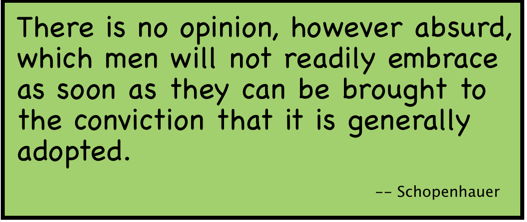
Quotation AC601-Q2.
* * * * * * * * * * * * * * * * * *
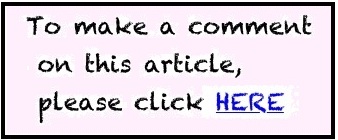
References and Links
[1]. Science Court. https://en.wikipedia.org/wiki/Science_Court .
[2]. The Greenhouse Gas Fallacy Revisited. http://www.aoi.com.au/bcw/GreenhouseGasFallacyII.htm .
[3]. The Perth Science Court Proposal. http://aoi.com.au/ltw/PerthScienceCourt.htm/ .
[4]. Thomas Gold. New Ideas in Science. http://www.amasci.com/freenrg/newidea1.html .
[5]. Thomas Gold. https://www.famousscientists.org/thomas-gold/ .
[6]. David Noel. The Rising Sealevel Myth -- Proofs that ocean levels are falling, not rising. http://www.aoi.com.au/bcw/Sealevel/index.htm .
Go to the Acceptology Home Page

Version 1.0 compilation started 2019 Jul 12, on Web 2019 Nov 5.







